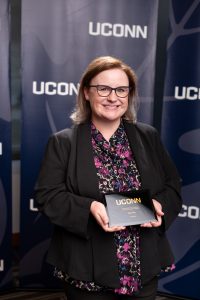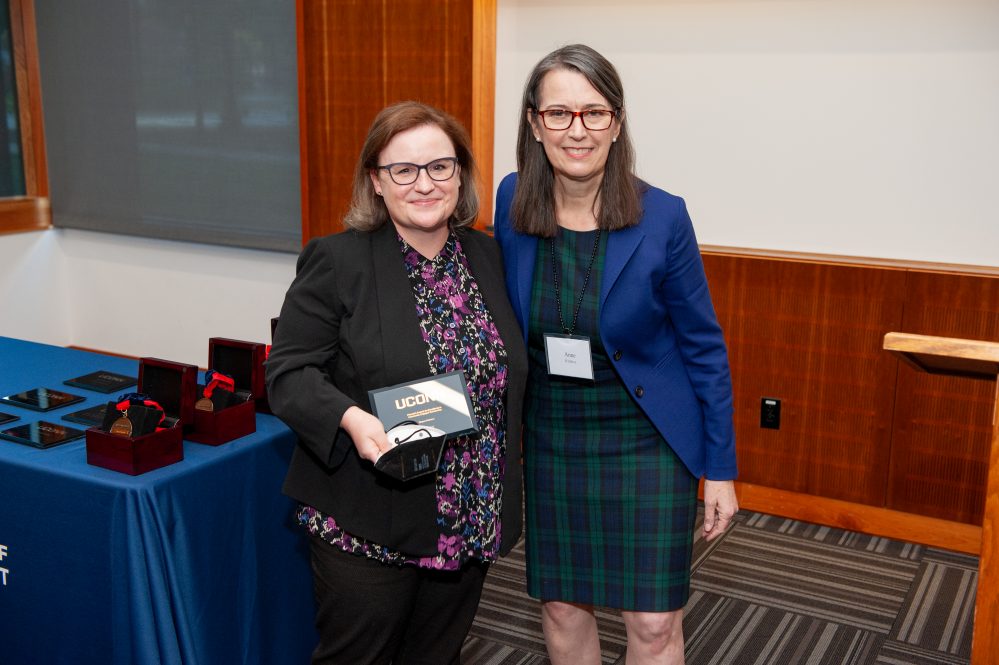Delaney earned the award for her efforts in advancing diversity, equity, inclusion, and anti-racism (DEIA) initiatives within the university. She expressed surprise and gratitude for receiving the award, noting that it acknowledges her work in both advising students and addressing systemic issues in academic settings.
Delaney completed her Ed.D. in Educational Leadership at UConn in May 2023, with a focus on higher education, critical whiteness studies, and academic advising. Her dissertation, titled “Systemic Whiteness, Racial Consciousness, and Deconstructing Becky(s): A Phenomenological Study of White Women STEM Academic Advisors”, delved into how whiteness affects academic advising in predominantly white spaces.
“I noticed there was a much bigger gap in terms of the diversity. In the humanities, there were a lot more diverse students. When I came over to the pharmacy, I saw a lot of these students, who looked like me—they’re white” she says.
Delaney’s journey from advising liberal arts students to working with STEM students highlighted stark differences in diversity.
She describes a “light bulb moment” during her doctoral studies when she realized that the educational system often frames students as the problem rather than addressing the inequities built into the system. “We need to think about how the system is set up to benefit certain students over others,” Delaney says.
 Her research found that white women advisors often reinforce existing social hierarchies and gender norms in their advising, making it harder for students of color.
Her research found that white women advisors often reinforce existing social hierarchies and gender norms in their advising, making it harder for students of color.
Delaney has consistently advocated for change, serving on various committees at UConn, including the School of Pharmacy’s Diversity Committee and the Wellness Committee.
She hopes to collaborate with UConn’s Central University Advising to develop in-depth training that moves beyond basic sessions.
“There’s a lot of work that needs to be done to break down those barriers,” she says, emphasizing that while most advisors want to improve, many lack the tools to do so effectively.
Reflecting on her work, Delaney acknowledges the challenges she faced, such as time constraints and difficult conversations. However, she remains committed to addressing systemic issues head-on.
“If I can’t talk to other white people about it, you’re never going to move the needle,” she says.
Delaney’s work, driven by her personal dedication and academic research, is a strong example of the continued efforts to create a more inclusive academic community at UConn.



